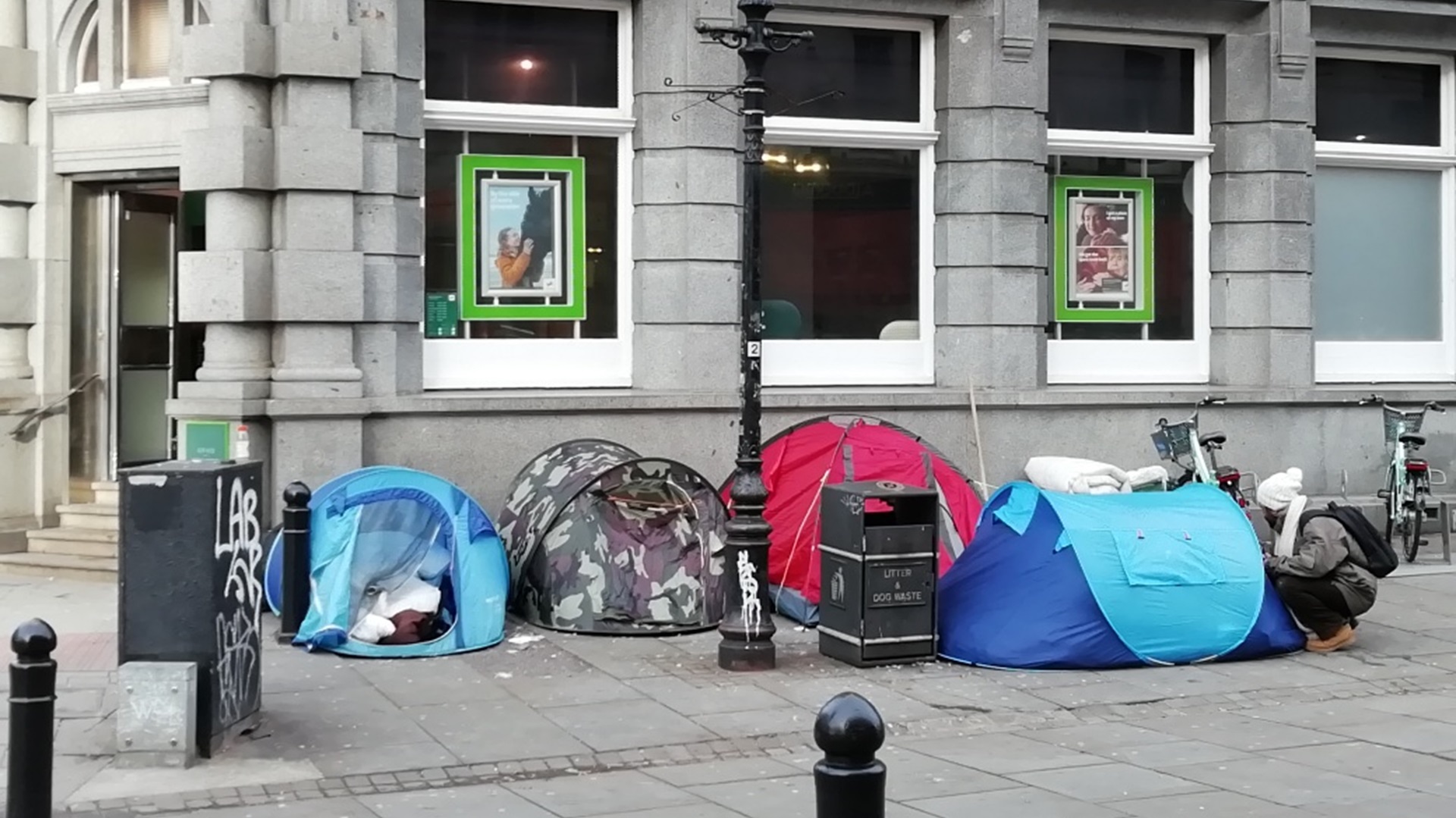“If we focus on the solutions that work – building safe and stable social housing and investing in specialist support that helps people keep their home – we can end rough sleeping. But the first and easiest thing the home secretary can do is listen to the concerns of these experienced organisations and remove these cruel and counterproductive measures.”
The government first promised to scrap the Vagrancy Act, which harks back to the Napoleonic Wars and criminalises rough sleeping and begging, in 2021 – but it remains in force until it is replaced.
The Criminal Justice Bill, drawn up when Suella Braverman was home secretary, is set to replace the act despite opposition from homelessness charities who insist police already have sufficient powers to deal with anti-social behaviour linked to street homelessness.
The new legislation has also attracted criticism from Conservative MPs who have taken issue with the broad definitions in the bill, most notably, the power for police to act over an “excessive smell”. Backbench Tory MP Bob Blackman described the proposals as “completely unacceptable”.
Health secretary Victoria Atkins told Sky News on Thursday (11 April) morning’s broadcast round denied that criminalising a person’s smell was the government’s intention.
“It is not what is in the bill. We want to help the most vulnerable in society. We are investing £2.4bn to eradicate rough sleeping and we have been very clear that we are trying to target those criminal gangs that make a living out of intimidating people,” she said.
Advertising helps fund Big Issue’s mission to end poverty
“We want to stop some of the aggressive begging that can happen around cashpoints, for example, but we do not and will not criminalise people who do not have a home. That is not what this bill is about.”
The open letter, signed by Shelter, The Salvation Army, The YMCA and human rights lawyers Liberty, among others, warned the bill undermines the government’s ongoing target to end rough sleeping this year.
The target remains despite recent government figures showing an estimated 3,898 people slept rough on one autumn night across England, an increase of 27% on the previous year.
The letter said: “We recognise the steps that your government has taken to address rough sleeping. After committing in its manifesto to end rough sleeping by the end of this year, the government has put £2bn behind a rough sleeping strategy in England. The chancellor recently restored local housing allowance rates, which will help many more people afford their rent.
“Measures in the new Criminal Justice Bill, however, will undermine these commitments.”
Alicia Walker, head of policy research and campaigns at Centrepoint, said the rough sleeping element of the bill must be scrapped or risk leaving young people with a “mistrust of authorities”.
Advertising helps fund Big Issue’s mission to end poverty
“This law would give police powers they don’t need to do something the public don’t support. You can’t punish people out of rough sleeping because – as the soaring numbers of people on our streets show – this is a deep, structural problem that requires a thoughtful, political response,” said Walker.
“The move to scrap the Vagrancy Act was the right one – it defies logic to replace it with something even more punitive. That’s especially the case when the police and councils have more than enough powers to keep communities safe and there is no evidence that arrests would help someone get off the streets or prevent anti-social behaviour in the medium or longer-term.
“Worse still, our research shows that these types of laws are disproportionately used against young people, including young children. Many of those criminalised, some of whom will be incredibly vulnerable, will already mistrust the authorities and be wary of accessing support and could be pushed further into homelessness. That is clearly in no one’s interest and underlines how important it is that the rough sleeping element of the bill be completely scrapped.”
Do you have a story to tell or opinions to share about this? We want to hear from you. Get in touch and tell us more.









